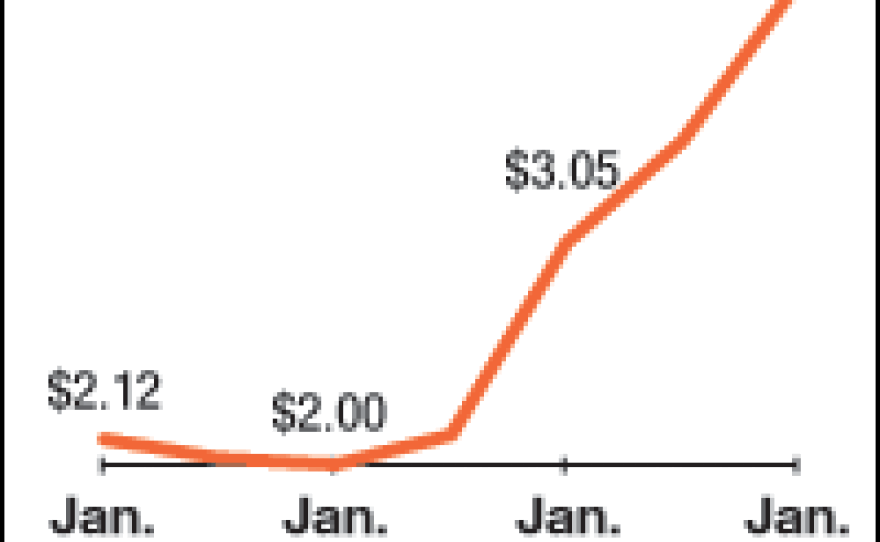
Demand for ethanol and other biofuels is a "significant contributor" to soaring food prices around the world, World Bank President Robert Zoellick says. Droughts, financial market speculators and increased demand for food have also helped create "a perfect storm" that has boosted those prices, he says.
The soaring costs of food and fuel led to riots in Haiti and Egypt and a general strike in Burkina Faso this week. Skyrocketing food prices are topping the agenda this weekend of the World Bank and International Monetary Fund annual spring meetings in Washington.
Zoellick held up a bag of rice during a news conference Thursday to illustrate the severity of the food crisis.
"In Bangladesh a two-kilogram bag of rice ... now consumes about half of the daily income of a poor family," he said. "The price of a loaf of bread ... has more than doubled. Poor people in Yemen are now spending more than a quarter of their incomes just on bread."
And Zoellick says prices for basic staples will remain high for an extended period of time.
"I think you have a perfect storm of things coming together," he tells NPR's Steve Inskeep in an interview. "You have high energy prices. You have the increase in demand from some of the developing countries. ... As the Indian commerce minister said to me, going from one meal a day to two meals a day for 300 million people increases demand a lot.
"You have some of those countries moving to a different diet. So more meats require more grains. You have the biofuels expansion, which is a big source of demand."
In the past two years, the price of corn in the United States has more than doubled, driven partly by demand for alternative fuels such as ethanol.
Climate, including droughts in Australia and Europe that have limited crop production, has also had an impact on food prices, he says.
"All this together has led to a real reduction in food stocks," he says.
Commodities and other traders who are betting on higher prices also contribute to the climb.
"Those combinations of events have led to an emergency situation," Zoellick says.
The World Bank has projected that food prices will stay high or go even higher over the next couple of years, and biofuels are a major factor.
"Biofuels is no doubt a significant contributor," Zoellick says. "It is clearly the case that programs in Europe and the United States that have increased biofuel production have contributed to the added demand for food."
Copyright 2022 NPR. To see more, visit https://www.npr.org. 9(MDAzMjM2NDYzMDEyMzc1Njk5NjAxNzY3OQ001))





